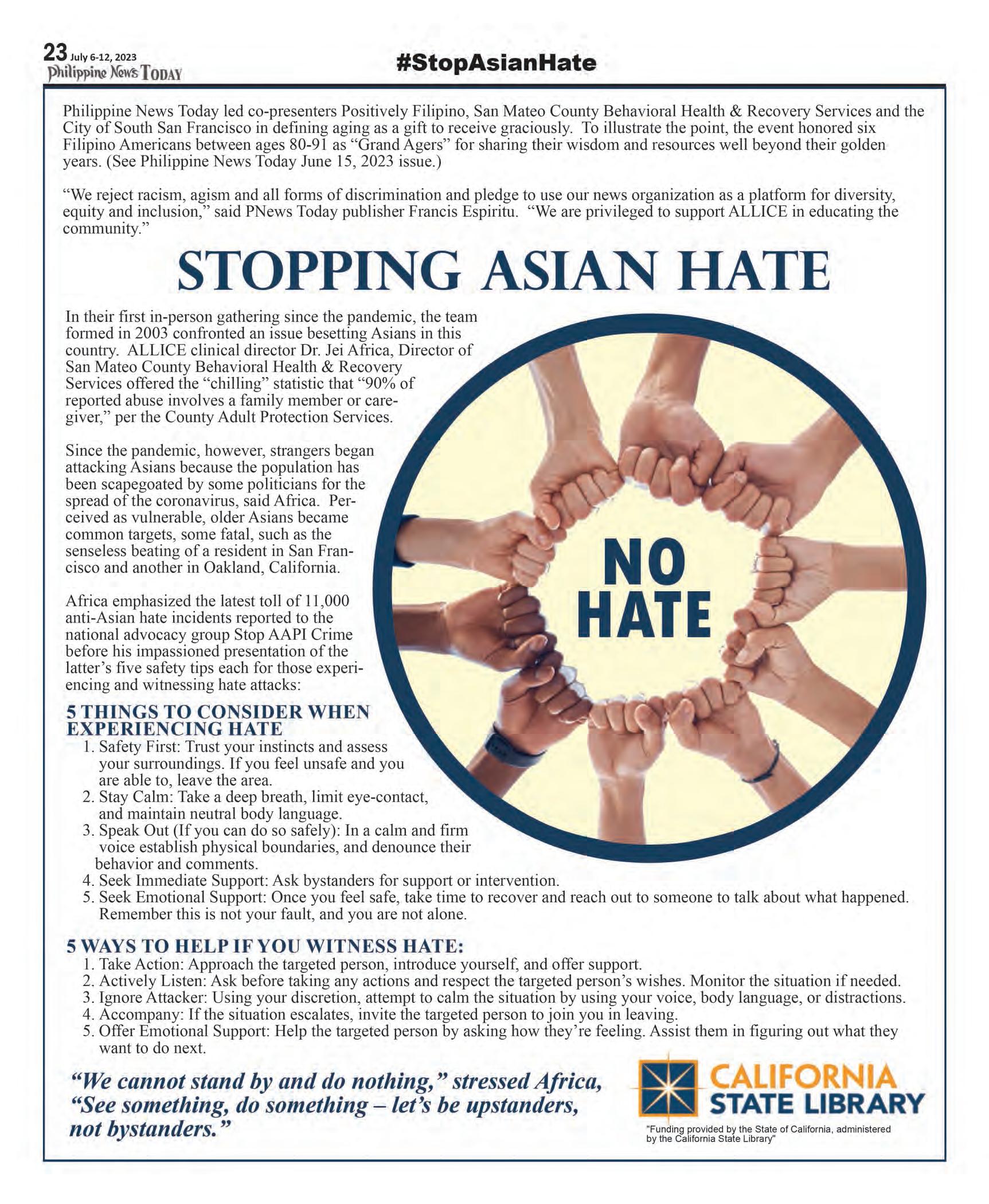
3 minute read
‘Race is Still Relevant’ — Advocates Slam SCOTUS Ruling on Affirmative Action
By Pilar Marrero
Many are vowing to continue the fight to protect diversity in higher education and warn policy makers and educators not to overreach in interpreting the controversial ruling.
Civil rights leaders joined together to denounce last week’s Supreme Court decision ending Affirmative Action. Many are warning of the negative effects the ruling will have on students of color.
“Race is still relevant, racial discrimination is still relevant,” said Thomas A. Saenz, President and General Counsel of the Mexican American Legal Defense and Education Fund (MALDEF).
Saenz pointed to the majority opinion written by Chief Justice John Roberts, which states that college admission programs can consider how race has affected an applicant’s character specifically, but that race cannot be a general consideration in admissions.
“That is a clear indication that this is not a mandate or even an invitation to ignore race in the context of higher education,” explained Saenz in an interview with Ethnic Media Services.
The June 29 decision overturned 45 years of precedent by ruling that Affirmative Action policies violate the Equal Protection Clause of the Constitution.
Saenz and others warned policymakers and higher education leaders not to overreach in their interpretation of the ruling. They also urged students of color not to “adjust their ambitions in any way” because of this decision.
“Policymakers cannot use this decision as some excuse to ignore racial disparity or to ignore the imperative to address it,” said Saenz. “This doesn’t change regulations under the Federal Civil Rights Act of 1964.”
Racial gaslighting
Colleges and universities across the country – particularly those states where, before this decision, race was still used as part of the criteria in college and university admissions – should evaluate their practices for equity, said leaders in the higher education access arena.
“We know that Affirmative Action was one of the best tools to ensure there was a diverse student body,” said Michelle Siqueiros, President of the Campaign for College Opportunity. “SCOTUS should have also banned legacy (admissions), which makes up more than a quarter to a third of the class at some selective institutions, including Harvard.”
She added the practice of granting admission to the sons and daughters of alumni, along with early decision admissions and the extensive use of standardized tests, “do not expand opportunities to low-income Black, Latino and Asian American Students.”
Several groups in Boston filed a complaint with the Education Department on
Monday requesting that it review the practice of legacy admissions, arguing it discriminates against students of color by favoring the children of alumni at elite schools, most of whom are white.
Author and education scholar J. Luke Wood described the ruling as “racial gaslighting at its best.” Wood is the incoming president at Sacramento State University.
“If they are concerned about discrimination, they should move away from standardized testing, which is a better indication about a student’s resources” and not his or her capacities. “This will definitely have an impact on access to colleges and universities by students of color,” said Wood.
Michele Siqueiros, President of The Campaign for College Opportunity, says affirmative action advocates will continue to fight for fair admissions to colleges and to ensure that campuses remain diverse.
“Thomas went to Yale Law School, my alma mater, at a time when almost certainly the law school was using an Affirmative Action system that benefited him,” said Saenz from MALDEF. “This indicates how much of a limitation this could be for our future. Future justices, future leaders, elected leaders, and future professionals will be diminished in their ranks by the court’s wrongheaded deci- sion.”
Michelle Siqueiros, President of the Campaign for College Opportunity, said that her organization and many others would fight to counteract the effects of this ruling as they have done in California and other states where local laws limited the use of race in admissions over the years.
“We won’t accept a return to the 1940s and 1950s when colleges blatantly discriminated against women, African Americans, Jewish Americans, Latinos, and Indigenous folks at their campuses,” said Siqueiros.
“We will be watching,” she added, noting that at a time when more than 50% of students in K-12 schools are students of color, “we are hopeful that college leaders know and support and value providing opportunity for all Americans.”











